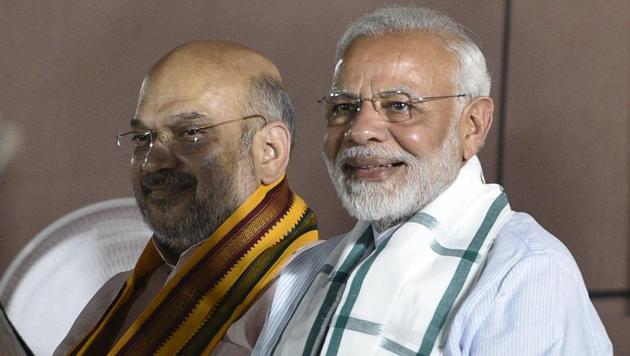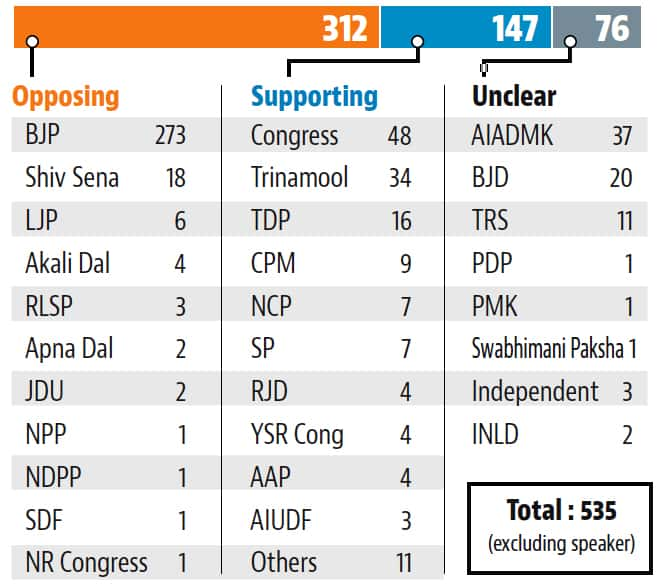Surprise Opposition: PM Narendra Modi, Amit Shah’s strategy behind Friday’s no-confidence motion
The government apparently wants the no-confidence motion to be wrapped up quickly so that the remaining days of the monsoon session could be devoted to getting important bills passed.
Lok Sabha Speaker Sumitra Mahajan’s decision to allow the no-confidence motion against the Narendra Modi government on Friday took many by surprise.

While most leaders expected a repeat of the budget session, when the government did not allow a trust vote and hardly any business could be transacted, the government strategists planned otherwise.
A ruling party leader on condition of anonymity said Prime Minister Narendra Modi and BJP chief Amit Shah wanted to take the opposition by surprise by accepting the no-confidence challenge on day one.
“We feel the opposition will have no issue to disrupt the house after the no-confidence is taken up,” a minister said.
The government wanted the no-confidence motion to be wrapped up quickly so that the remaining days of the monsoon session could be devoted to getting important bills passed, the leader said.
Explained: What is the no confidence motion and why has it been raised?
On the first day of parliament’s monsoon session, the Speaker admitted a notice of no-confidence motion by Kesineni Srinivas, a member of the Telugu Desam Party (TDP), an estranged ally of the Bharatiya Janata Party (BJP)-led National Democratic Alliance (NDA) government.
The motion for the debate will state, “This House expresses no confidence in the Council of Ministers”.

Congress leader Mallikarjun Kharge demanded that his party, as the largest single opposition group, be allowed to move the no-confidence motion, but the Speaker declined citing rules that the first mover, the TDP in this case, gets the chance.
This will be the first no-confidence vote in Parliament since 2003, when the then-NDA government, led by Atal Bihari Vajpayee, sailed through a no-trust motion initiated by the Congress.
The no-confidence motion has the support of the Congress, Trinamool Congress (TMC), Nationalist Congress Party (NCP), Samajwadi Party (SP), and the Communist Party of India (Marxist), or CPI(M), a bitter rival of the TMC, among others.
The TDP and other opposition parties had moved a notice of no confidence motion against the government during the budget session, too, but it could not be taken up for debate because proceedings were hit by numerous disruptions On Wednesday, there was a different dynamic in the house.






